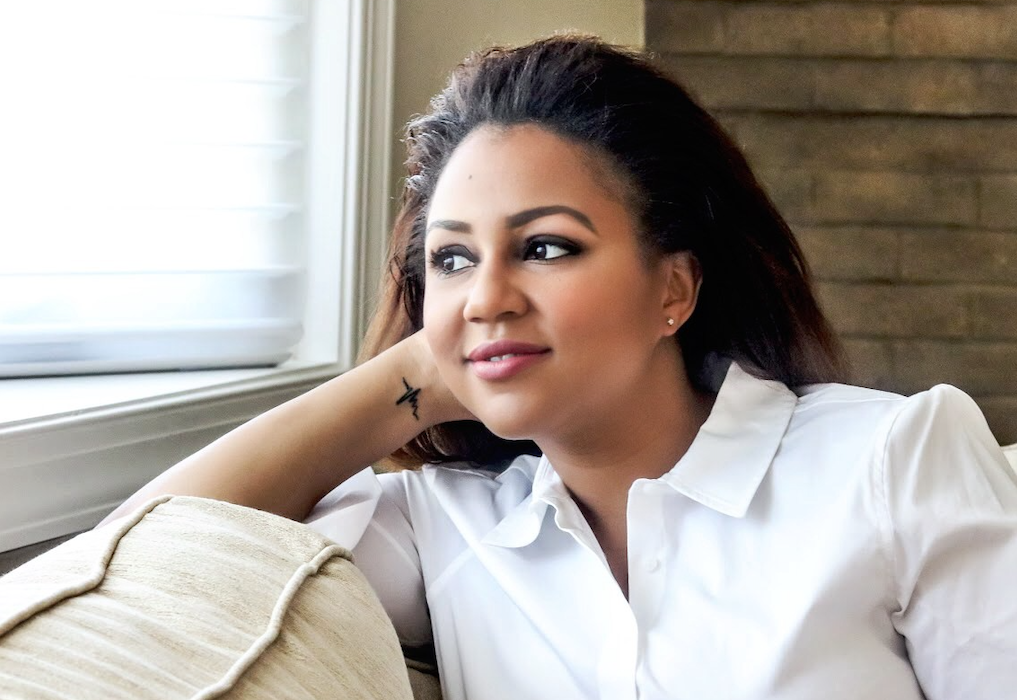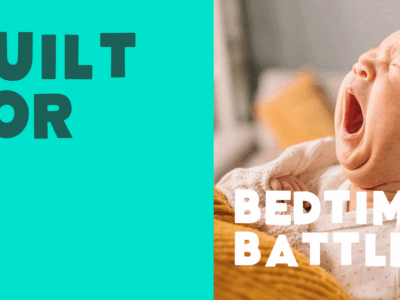When we first met with Christine Michel Carter, we felt the stars align. “Our missions are very much parallel,” said Christine. “I write and speak for mothers with the mindset that I’m hoping to break down the wall of What is normal? and Am I feeling something that other mothers don’t? I try to make moms feel like they are not alone.”
As a single mother of two, published writer, ‘mompreneur’, marketing professional, public speaker, and all around badass, Christine definitely knows the struggle of balancing parenting and career, and she held no bars when sharing the good, the bad, and the ugly. Simply put, Christine describes herself as an advocate for working mothers.
Our conversation ranged from how she’s letting her children be trailblazers in their pursuit of their identities to the moment she knew it was time to end her tumultuous marriage to an alcoholic. We were so enthralled by her raw, unapologetic transparency during our conversation that it was easy to see why her books and articles have gained such popularity among mothers everywhere.
Christine strives to show mothers that they are not alone in the never-ending dance of work/life balance. I mean, if missions could be soulmates, hers is definitely ours! She is a treasure trove of wisdom and experiences. We truly felt better, lighter, and stronger after our conversation with Christine, so we’ve picked some of her best nuggets to share with you in hopes they bring you the calm and motivation she brought us.
The Path to Becoming a Mom
Everything about pregnancy is surrounded by the unknown and there’s so much that’s outside of your control. The fear of the unimaginable at any stage, even after birth, can leave a new mom feeling paralyzed.
“I first became a mother in 2011 with my daughter Maya—the entire pregnancy was just horrendous. I was in the middle of the street in downtown Baltimore and my legs locked, and I thought Huh, that’s funny. That next night [I] ended up going into the hospital. After being in the hospital for four days and not realizing that my legs had locked because I was having a contraction, I delivered my daughter at 31 weeks…she was in the NICU and…I was terrified to see her. I thought she was going to die, and I didn’t want to build an attachment to somebody who was going to pass.
My aunt finally said to me ‘You’ve got to see your daughter…She needs you.’ So she wheeled me up to the NICU and they put [my daughter] on my chest. From that moment I was in love with this little girl.”
Sometimes You Have to Pave Your Own Road
“I worked for Zipcar as a manager and there were no other women in my office, they had no real maternal policy. So when it came time for me to come back after maternity leave, there was no mother’s room. I was pumping in a bathroom stall.
Like so many women, it’s only when you become a mother that you realize you need to be an advocate for others. I had to have a heart-to-heart with my manager and say ‘Listen. This is not going to fly, and I know that we have a small working space, but you’re going to have to figure something out.’ So they rented a whole other office just so that I could have a mother’s room.”
There’s too many women still running out to their cars, sitting on the toilet, or locking their office doors so they can pump at work. Too often, mothers are afraid to speak up for what they need for fear it will affect how they are viewed in the workplace. Christine’s unapologetic and frank conversation drives home the need for everyone, not just mothers, to continue to speak up to create a cultural change.
“We really need to be breaking these taboos. We really need to be making this just a part of life like everything else and eliminating this approach to motherhood as its own stage.”
Saying Goodbye
Like so many of us, Christine always imagined a particular life for herself, but she soon realized that wasn’t her reality.
“I always wanted to be like my grandmother with this big family and have love around me all the time. [My ex] didn’t come from the same kind of family, so he didn’t understand the importance of it. I just felt like I was never going to be able to have that and be a good and influential mother if I stayed married to him.”
Beyond a difference in imagined family life, Christine’s ex had his own demons to battle through. “I asked myself, at what point do I get to be happy? I had to sit down and think about, as a black woman, as a black mother, why are we so okay with carrying such a heavy load?”
Eventually, Christine made the difficult decision to leave a husband who didn’t share in her values, breaking the societal standards she feared. Has she looked back? No. Does it come with a new set of challenges she continues to wade through today? You bet. Any regret? Never.
Who Let Me Be a Mom?
“Imposter syndrome seems to hit women and minorities the most, which means many millennial moms are experiencing it. [It’s] this feeling of doubt and worry that leads you to feeling less than. I always say that imposter syndrome feeds off of isolation. Even though we have social media, we are still so lonely. All of these questions that we want to ask, we only ask ourselves. Everything you feel So there’s no reason to feel shame about it.”
If there’s ever a time in a woman’s life when imposter syndrome hits hard, it’s motherhood. Christine’s point? You’re no imposter. “There’s no reason to feel shame. Everything you feel has happened before or has been addressed before in just a different fashion.” If you’re wondering if you can really do this thing and if it’s this hard for everyone, spoiler alert: it is.
Christine reminds us that as millennials we are also in the uniquely powerful situation of raising the next generation, the most diverse kids of all time, who will grow up to truly be the change this world needs.
So yes, we can do this.
Letting Kids Define Themselves
One of the defining features of this parenting generation is our openness to let our kids truly be themselves. Christine knows how important it is for her children to blaze their own paths, and we’re all about it.
“I try to include my son in activities that have boys and girls, so he does boxing and karate with his sister. He can see how strong and competent his sister is. He can see women working out in the gym so that he doesn’t think, ‘Oh, this is a boy sport or this is a girl sport.’
If he latches on to a show that might be considered feminine for older generations, like Polly Pocket or Barbie, I let him. I want him to see women as his equal, as strong and confident. Both of these shows have really done a great job at modernizing the characters.
For my daughter, she chooses everything that has to do with her. I’m here for guidance, I’m here to help with homework, but I’m not going to tell her what shoes to wear, I’m not going to tell her what outfit to put on. I’m not going to tell her how to do her hair. And she is loved in her class because she comes in with all these different hair colors and all these different braids, because I want her to feel like she can express herself, from head to toe. I’m trying to encourage my children to be compassionate to others, see each other as equal and also feel confident in their own skin.”
Our time with Christine had us non-stop nodding as she described her life, her choices, her determination and the inevitable ups and downs. So often, we see this rose-colored picture (hello, Instagram!) of other people’s lives who seem to have it all. But what we’re actually seeing is a tightly curated image, and only when that individual makes the bold choice to pull back the layers do we recognize that everyone struggles. Everyone doubts themselves. Everyone has moments where they feel not enough. Because of the openness of women like Christine, a culture of conversation is forming, and all we can say is it’s about damn time.



